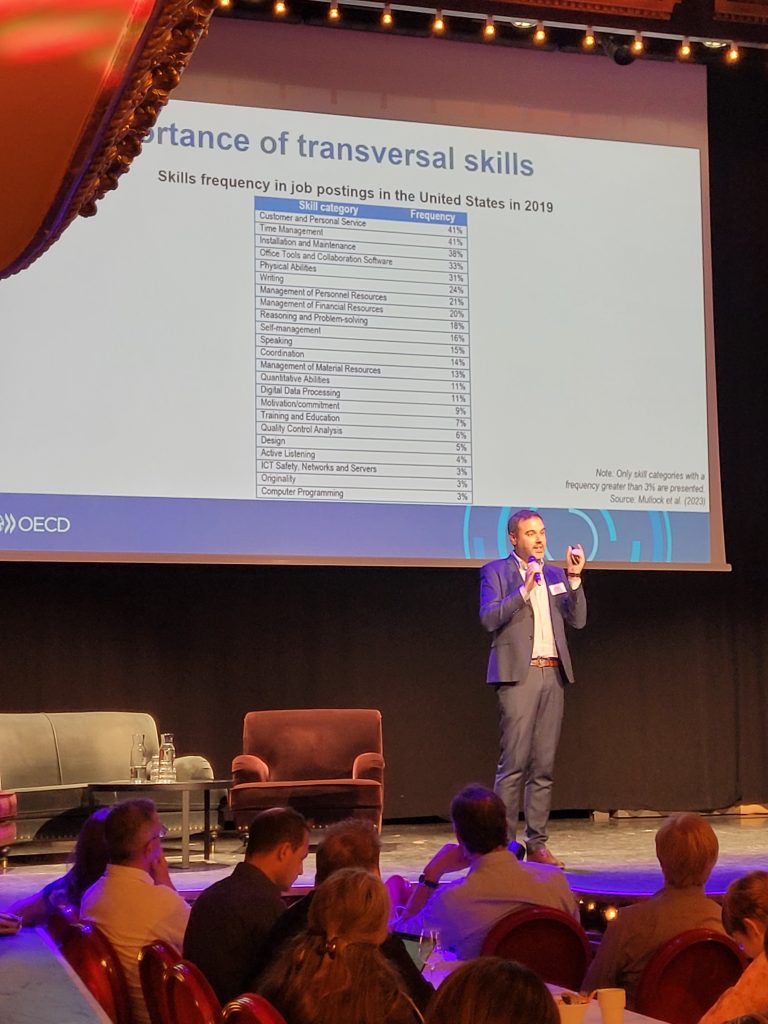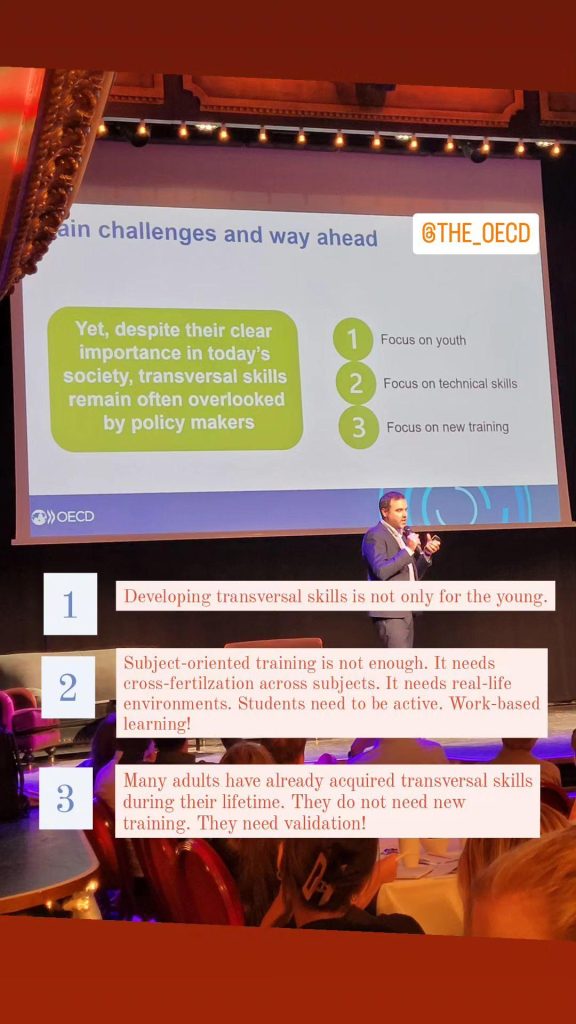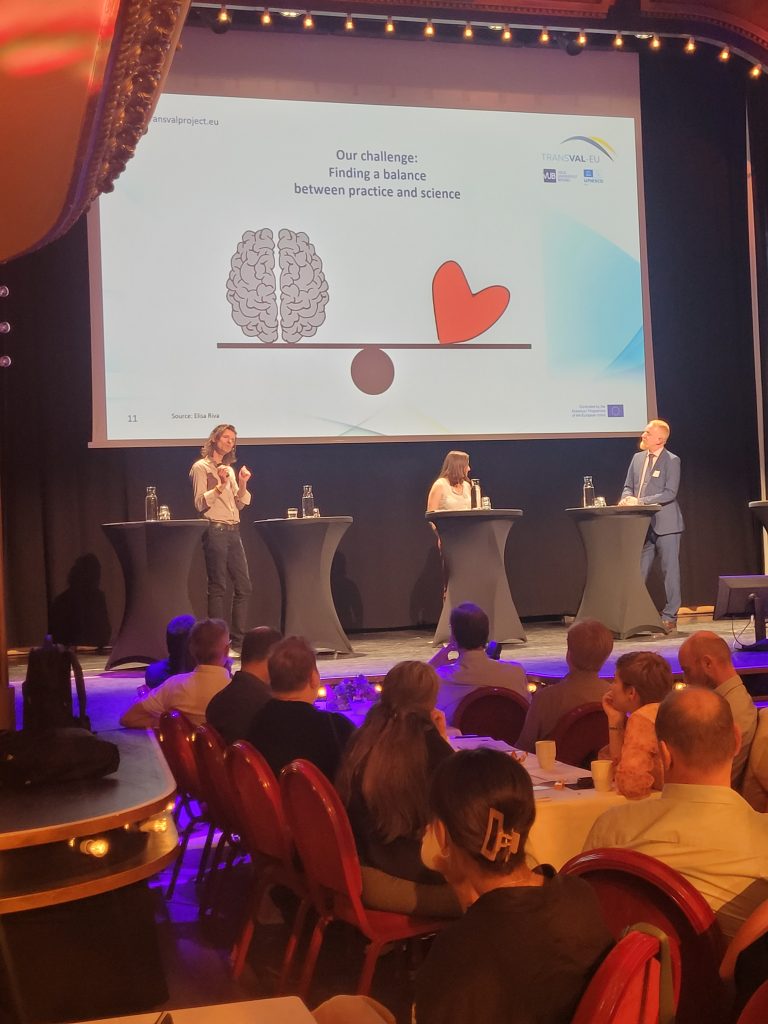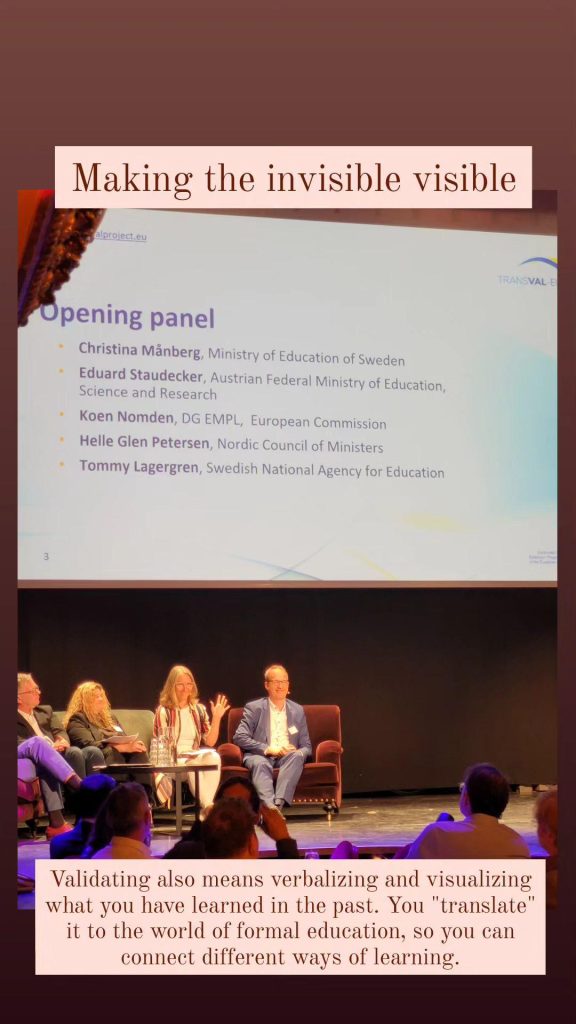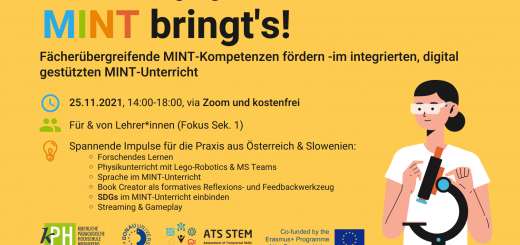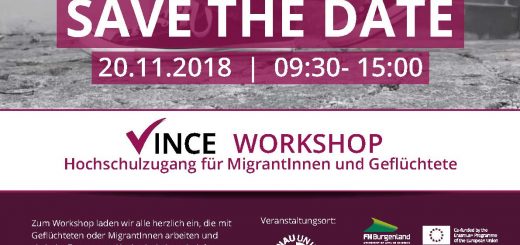Make all skills visible: Validate transversal skills in higher education
About last week in Stockholm: Not only Kanelbullar and Fika but also input regarding the validation of transversal skills for validation procedures at Austrian higher education institutions during the TRANSVAL policy conference in Stockholm on May 24th and 25th of May.
Transversal skills are general life skills and are central to working and living. They are getting more and more relevant for societal participation and employability. Still, they are often overlooked. What can we do on a policy level? In this blog post, I am sharing my learnings from the conference regarding validation procedures in higher education.
I was invited to join the TRANSVAL conference by eucen and LLL platform. The project results are particularly interesting to me, as my university will pilot the first validation procedures for non-formal and informal learning this autumn. To the right, you can watch my Instagram reel with impressions about the conference and my stay in Stockholm!
But first things first: What are transversal skills and why should we validate them? Transversal skills seem to be involved in daily activities and still, we have trouble grasping them.
One concept, many names
Transversal skills are general life skills and are usually developed throughout your daily life, at work, in leisure time, in civic engagement, in household and family work, etc.
As they are not exclusively related to any particular discipline or field, we call them “transversal”. Still, there are various names for these kinds of skills. Some countries call them “generic”. The University for Continuing Education Krems calls them “universal competences”. They are also well known as “21st-century skills”.
12 categories of transversal skills
The TRANSVAL project developed categories of transversal skills to support the reflection and validation of these skills, which are often overlooked:
- Managing and organizing activities
- Solving problems and reacting to the unforeseen
- Cooperating and fostering cooperation
- Using oral communication in one or several languages
- Resource management
- Taking professional, social, and cultural norms into account
- Using written communication in one or several languages
- Communicating using digital technologies
- Managing information and critical thinking
- Building one’s career path
- Developing one’s competences and profile
- Self-reflection
During the TRANSVAL conference, they asked us to reflect on which of the named transversal skills we think we are most proficient in. I chose “communicating using digital technologies” for myself 
What are the benefits of making transversal skills visible?
Why should we validate “life skills”? Doesn’t everyone have these life skills? At some point yes, but to what extent does someone have a skill? Some people had the chance to develop them, others didn’t. There are also levels of proficiency. An example: As a beginner, you can use basic functions and apps for digital communication (like writing text and sending pictures on WhatsApp). As an expert, you can also use various functions like video, audio, picture, and text to tell you a story. You can show “social presence” online.
Fit for the future?
Employers realize that they need staff with transversal skills in the next decade, who can handle quick technological and societal changes. But, it seems that not everyone is fit for this challenge: “International surveys and studies have highlighted important gaps between employers’ demand for individuals with transversal as well as job-specific competences, and on the supply side, the proportion of working-age adults with the competences needed.” (TRANSVAL State of the Art Report, 2021)
Results of validation procedures – a signal for employers, chances for individuals
If you go through a validation process, this is a great chance to be aware of well you have developed certain transversal skills. You understand at which point of your learning pathway you are and what the next steps to take to attain your personal or professional goals are. The result of a validation process is more awareness about your skills and competences. But also, you could use this result for application for a new job or position.
Transversal skills in formal education
In formal education in schools or at universities, certain transversal skills always have been cultivated and promoted, but very often as a hidden agenda of the curriculum. They were not assessed or reflected.
Nowadays, transversal has more and more become an “official” part of curricula and assessments. But also in schools, transversal skills are becoming more and more important. The EU-project ATS2020 – Assessment of Transversal Skills 2020 was dedicated to supporting assessment FOR learning and integration of transversal skills into the learning designs of teachers.
Relevance for Austrian higher education
For example at the University for Continuing Education Krems all new curricula should include so-called “universal” skills, which basically mean “transversal skills.” With the new legislation in higher education which allows the validation of prior learning, it is also possible to assess and validate transversal skills.
The methodology of how to do that is pretty tricky because Higher Education is used for content-based education and assessment. The validation of transversal skills and a performance-based/practical view is rather new to most of the university staff. Therefore, the conference in Stockholm was particularly interesting.
To-Dos for successful validation procedures
There are some aspects that have to be fixed BEFORE the validation process can be successfully offered based on experiences in Iceland and the Netherlands (who have been offering validation for more than 2 decades now).
It needs training – and funding! It needs trained validation staff in higher education if we want to make validation work on a high-quality level. The attitude and mindset of validation staff need to be right – away from content-centered education. Training and providing validation in general is a budget question. Validation is a service, that requires time and therefore money.
The 3 roles of validation staff: Project manager, guidance counselor, and assessor. Often, you cannot strictly separate these roles. Existing staff can take over one or the other role, but still, they need training then. It needs at least one “expert” staff member in each validation process.
Well-defined standards: How well are the learning outcome statements written? Weak learning outcomes lead to a low-quality validation process.
Validation methods: Portfolio-based or performance-based. If validation candidates have to build a portfolio with evidence that they have certain skills, this is actually a skill on its own. Instead of only assessing knowledge and skills we need to assess behaviors, results, and acceptance in a certain field. The assessment itself should be understood as interpretative performance, which should be done at least by 2 assessors (4-eye-principle).
Steering: There needs to be a project manager for the validation cases. Also, someone needs to have responsibility for process management in general.
Good to know: Self-evaluation and under-estimation
Validation candidates (who want their skills validated/assessed against standards) are often very strict in the self-evaluation of their skills. They estimate their skills to be worse. Learning from experience leads to tacit knowledge: Validation candidates underestimate their skills. It is important to include self-evaluation, but it cannot be the only method to be used to help validation candidates in the process.
What do you think?
What needs to be considered when implementing validation processes in general in higher education? Do you think the categorization of transversal skills done by TRANSVAL can be used? Any other thoughts?
